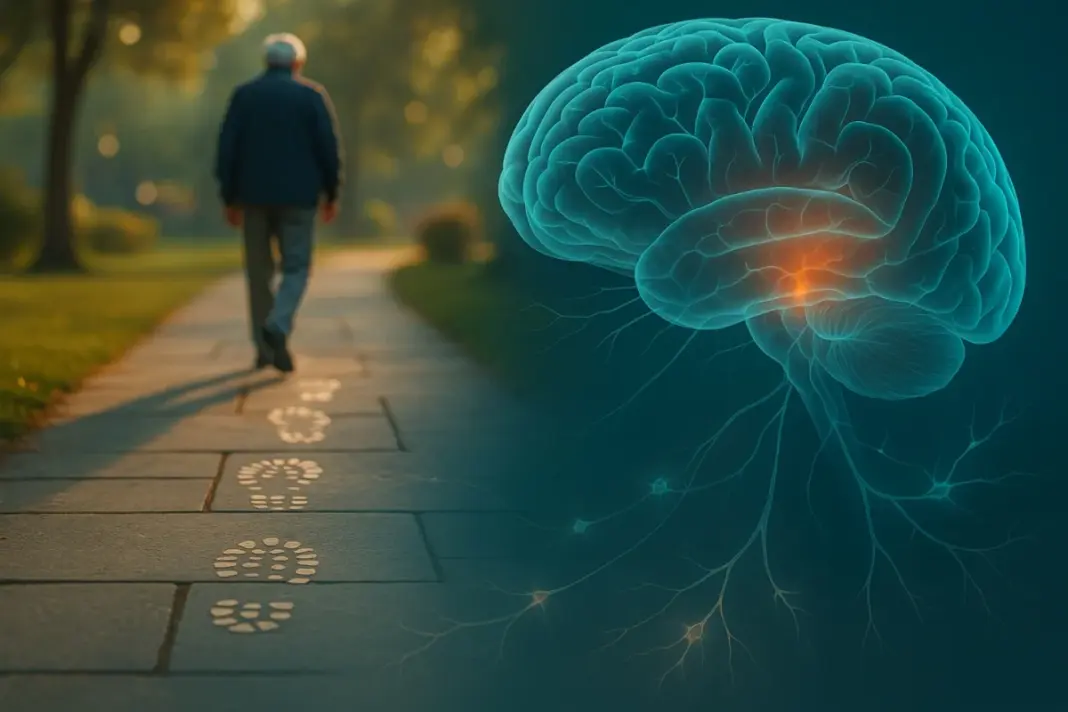Some truths come quietly, like a doctor hinting that memory might begin in your feet. When a Bengaluru neurosurgeon claimed that “dementia can start in your legs,” curiosity sprinted faster than science.
How could something as simple as walking hold the secret to memory? Yet, step by step, researchers now reveal how leg strength might just keep your brain sharper than you ever imagined.
A Shocking Theory Questions Where Dementia Truly Begins
In his viral post, Dr. Arun L Naik, chief neurosurgeon at Sagar Hospital, said, “dementia can start in your legs.” This statement questioned where memory loss truly begins. He explained that leg health and brain function are deeply connected.
A 2020 study in Neurology found that slower walking speed in older adults was linked to smaller brain volume. The finding drew global attention to the walk-to-memory study and the idea that walking is a full-brain workout.
Doctors Find Walking Speed May Predict Future Memory Loss
Dr. Naik stressed that weak legs indicate more than physical decline. They can forecast early dementia signs that walking experts now recognise. Every step activates the frontal lobe, spinal cord, and cerebellum, together forming the brain–leg connection.
When walking slows, circulation to the brain also weakens. Scientists say this makes the brain more vulnerable to cognitive decline, hinting that walking and brain health might share the same rhythm.
Experts Explain How Leg Weakness Can Impact Brain Health
Inactivity triggers muscle loss called sarcopenia, which worsens after the age of forty. Dr Naik’s walk-to-memory study explains that weak muscles produce fewer protective proteins like BDNF, IGF-1, and VEGF.
These compounds help neurons grow and stay alive. When levels drop, brain cells struggle to repair. As a result, poor leg strength might fast-track brain ageing. Staying active keeps both muscles and memory alive.
Slower Steps and Balance Issues Could Signal Cognitive Decline
Changes in walking style or balance often appear before memory lapses. The dementia leg connection explains that gait disruptions can hint at brain changes years ahead. Inactivity reduces blood flow, lets inflammation rise, and limits oxygen reaching the brain.
However, even gentle movement can restore circulation, improving focus and memory. Walking and brain health share a cycle; each step fuels sharper thinking and steadier movement.
Walking Daily Might Strengthen Both Memory and Mental Clarity
Dr. Naik urges everyone to begin early. He says even in your 60s, movement lowers dementia risk. Exercise increases nitric oxide, keeps blood vessels flexible, and calms stress hormones. Regular brisk walks, balance drills, and lower limb strength training serve as cognitive insurance.
Daily movement enhances both mental clarity and memory. The walk-to-memory study concludes that strong legs mean strong neurons and sharper minds.
Your feet might lead the way to a sharper mind. Keep them moving, and your memory follows closely behind.
Disclaimer: This content, including advice, provides general information only. It is not a substitute for a qualified medical opinion in any way. The methods and claims mentioned in this article should be considered as suggestions only; DNP India neither confirms nor denies them. Always consult a doctor before following any such suggestions/treatments/medications/diets.



